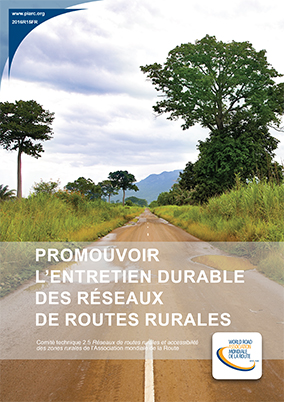Promoting sustainable maintenance of rural roads networks

Rural roads are roads or improved trails whose main role is to ensure local exchanges, providing access to rural areas and access to the national or regional primary road network or to the interconnected network.
Rural roads are key to development and economic growth of countries and provide considerable social benefits. Inadequate maintenance of rural roads results in reduced mobility; increased vehicle operating costs; increased number of accidents; increased death toll and related consequences; and reduced access opportunities. Poor maintenance also reduces access to medical care and increases illiteracy in rural communities.
As road networks are ageing, they become more vulnerable to climate change. Also, as countries have higher expectations about the contribution of roads to economic growth, maintenance needs are constantly increasing. Therefore, the share of road maintenance expenditure in national road budgets should increase accordingly and requires a more prudent, more efficient and transparent management, for an optimal use of resources.
This report prepared by PIARC Technical Committee 2.5 shows that road maintenance expenditure is of key interest. The report details the socio-economic benefits of adequate maintenance, and--even more importantly--, the socio-economic and financial repercussions of insufficient maintenance. The report is designed for road administration managers and decision makers in public funding.
Information sheet
- Date: 2016
- Author(s): Comité technique 2.5 Réseaux des routes rurales et accessibilité des zones rurales Technical Committee 2.5 Rural Road Systems and Accessibility to Rural Areas
- Domain(s): Road Network Operations / Rural Roads
- Type: 2016R15EN - Technical Committee
- PIARC Ref.: 2016R15EN